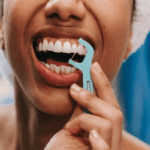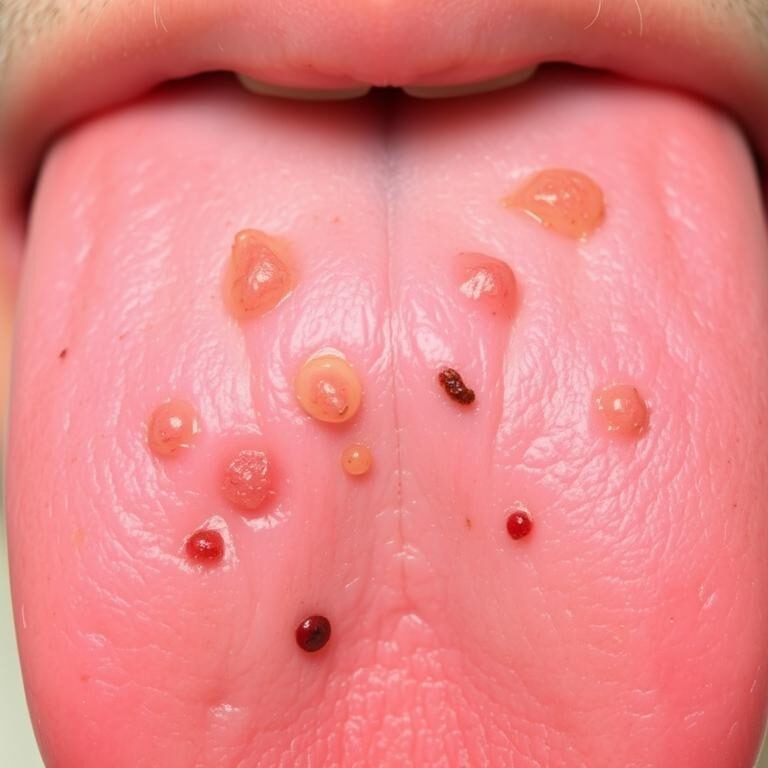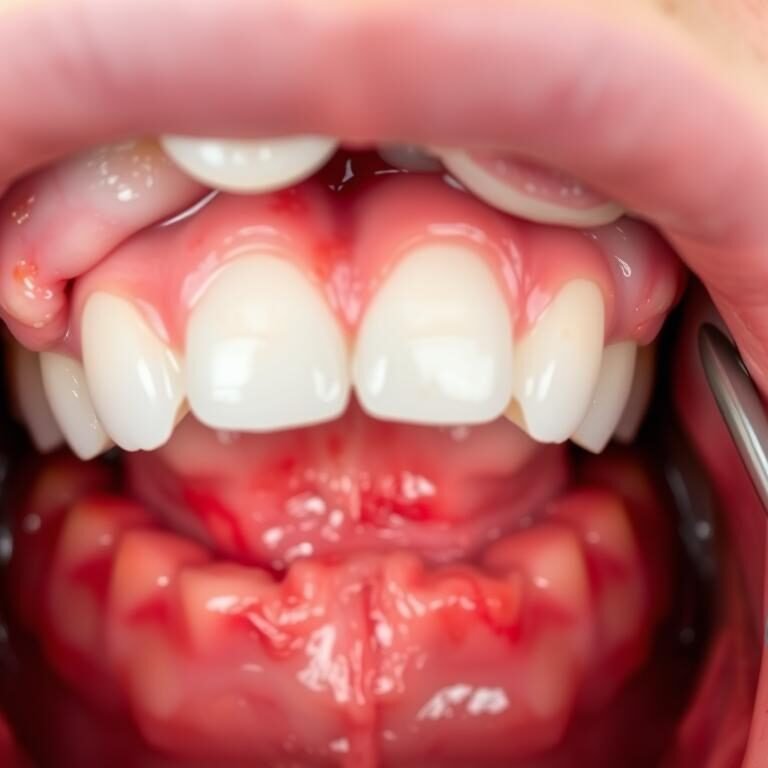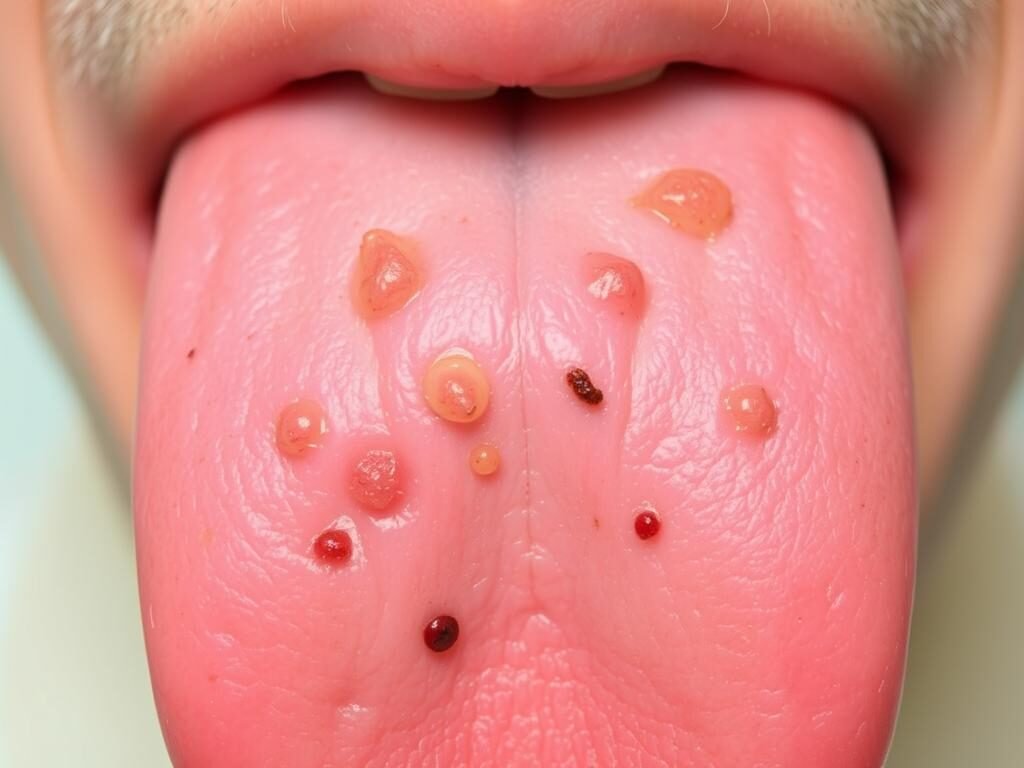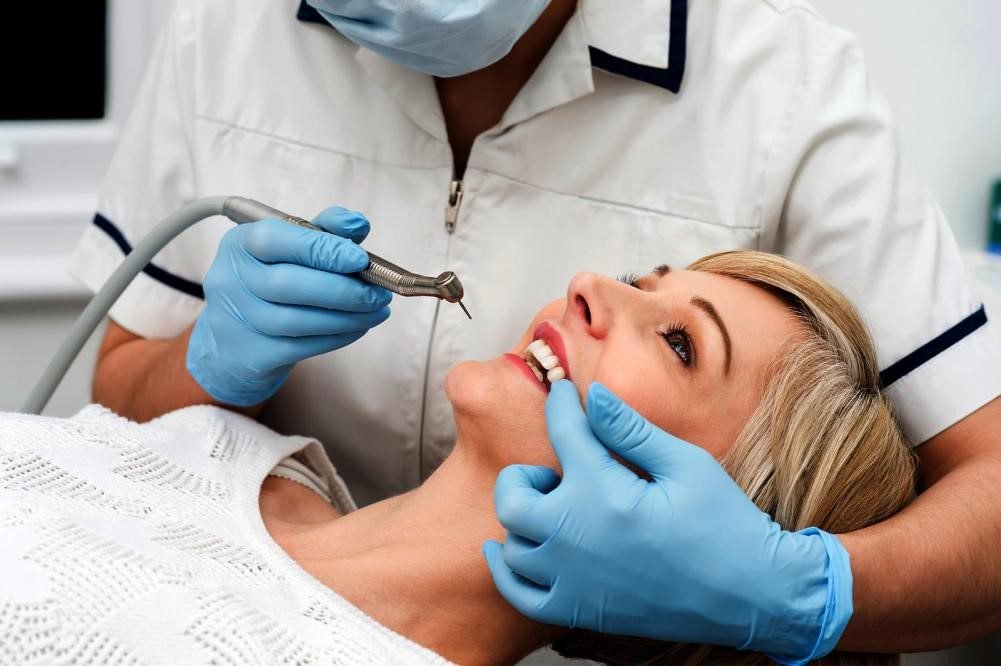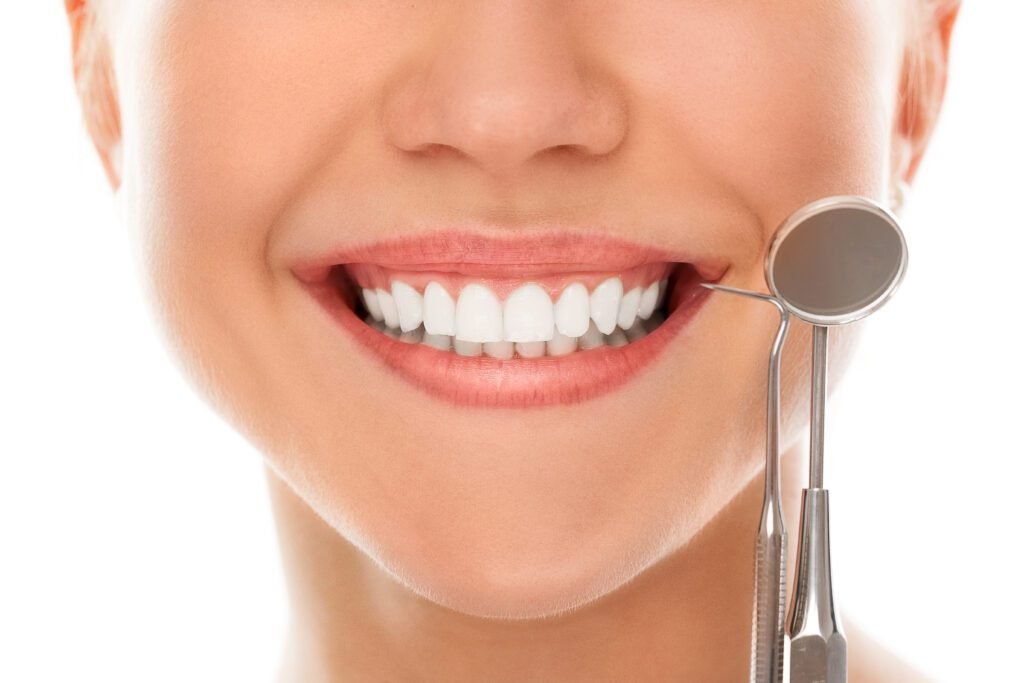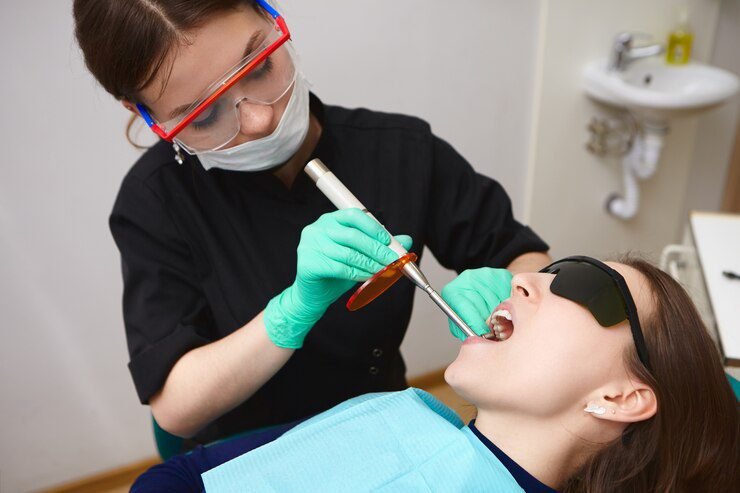Table of Contents
Causes of Dry Mouth: Exploring the Factors
Dry mouth, also known as xerostomia, is a common condition that affects the production and flow of saliva in the mouth. There are several factors that can contribute to the development of dry mouth. One of the primary causes is medication use. Certain medications, such as antihistamines, antidepressants, and diuretics, can interfere with the normal production of saliva, leading to dry mouth. Other factors that can play a role in the development of dry mouth include salivary gland dysfunction, dehydration, aging, and medical conditions such as diabetes and Sjogren’s syndrome. It is important to understand the various factors that can contribute to dry mouth in order to effectively manage and treat this condition.
Table
| Factor | Explanation |
|---|---|
| Medications | Many medications, including those for depression, high blood pressure, and allergies, can cause dry mouth as a side effect. |
| Aging | As people age, they may experience dry mouth due to changes in the body’s ability to process medications or a decrease in salivary production. |
| Medical Treatments | Treatments such as radiation therapy, especially to the head and neck, can damage salivary glands and result in dry mouth. |
| Dehydration | Insufficient fluid intake, excessive sweating, vomiting, or diarrhea can lead to dehydration and dry mouth. |
| Lifestyle Habits | Smoking tobacco or marijuana, as well as using drugs like methamphetamines, can reduce saliva production. |
| Health Conditions | Certain conditions, such as diabetes, Sjögren’s syndrome, or HIV/AIDS, can affect salivary glands and cause dry mouth. |
| Mouth Breathing | Breathing through the mouth, often due to nasal congestion or sleep apnea, can lead to saliva evaporation and dry mouth. |
| Anxiety and Stress | Increased stress and anxiety can alter saliva composition and lead to a dry mouth sensation. |
The Role of Medications in Dry Mouth

Dry mouth, also known as xerostomia, can be caused by a variety of factors, including medications. Many commonly prescribed drugs have been identified as potential culprits in contributing to this condition.
According to the American Dental Association, over 400 medications can trigger dry mouth symptoms, including antihistamines, antidepressants, diuretics, and certain medications used to treat high blood pressure. These medications work by interfering with the normal production and flow of saliva in the mouth, leading to the uncomfortable sensation of dryness.
The link between medications and dry mouth is based on their impact on salivary gland function. Saliva plays a crucial role in maintaining oral health by lubricating the mouth, neutralizing acids, and aiding in digestion.
When medications disrupt the salivary glands’ ability to produce an adequate amount of saliva, it can result in dry mouth. This condition not only causes discomfort but can also increase the risk of dental issues such as tooth decay, gum disease, and bad breath. It is important for individuals taking medications that may cause dry mouth to be aware of this potential side effect and discuss it with their healthcare professional.
Understanding Salivary Gland Dysfunction
The human body is a marvel of intricacy, and the salivary glands play a crucial role in maintaining oral health. Saliva, produced by these glands, contributes to the digestion process by breaking down food and lubricating the mouth. However, dysfunction in the salivary glands can lead to a condition known as Salivary Gland Dysfunction (SGD), which can have detrimental effects on oral health.
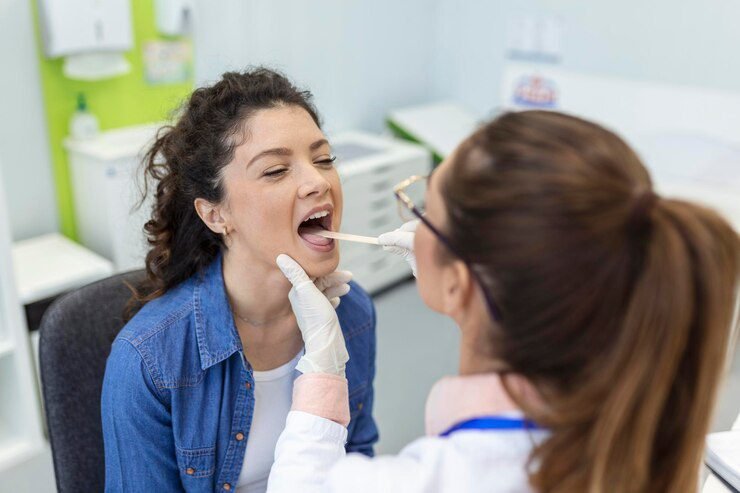
SGD refers to a variety of disorders that affect the normal functioning of the salivary glands. This dysfunction can manifest as either decreased or excessive saliva production, leading to discomfort and potential complications. There are several causes of SGD, including autoimmune diseases, infections, radiation therapy, and certain medications. Understanding the underlying factors contributing to this condition is crucial for effective management and treatment. In the following sections, we will explore the causes, symptoms, and available treatment options for Salivary Gland Dysfunction.
How Dehydration Affects Dry Mouth
Dehydration is a common cause of dry mouth, a condition characterized by a lack of saliva production in the mouth. When the body experiences dehydration, it is unable to produce enough saliva to keep the mouth moist. As a result, individuals may feel a persistent dryness in their mouth, which can lead to discomfort and other oral health issues.
Saliva plays a crucial role in maintaining oral health. It helps to cleanse the mouth, neutralize acids, and prevent the build-up of harmful bacteria. When dehydration occurs, the salivary glands do not receive enough fluid to produce an adequate amount of saliva. This can lead to a decrease in saliva flow, causing the mouth to become dry and increasing the risk of dental problems such as tooth decay, gum disease, and bad breath.
Furthermore, dehydration can also impact the overall quality of saliva. Normally, saliva is composed of a balance of water, electrolytes, and enzymes that aid in digestion and protect the teeth and gums. However, when dehydration sets in, the concentration of electrolytes and enzymes in the saliva becomes imbalanced. This can further exacerbate the dry mouth symptoms and contribute to poor oral health.
In addition to the discomfort and dental issues associated with dry mouth, dehydration itself can cause a range of other health problems. It is essential to stay adequately hydrated to ensure that the body functions optimally. Failure to do so can lead to complications such as fatigue, dizziness, muscle cramps, and even more severe conditions in severe cases.
If you are experiencing dry mouth, it is important to address the underlying cause, including dehydration. Maintaining proper hydration through regular fluid intake is crucial for preventing and managing dry mouth symptoms. Additionally, practicing good oral hygiene, such as brushing and flossing regularly, and visiting your dentist regularly can help minimize the risk of dental issues associated with dry mouth.
In the next section, we will discuss the link between dry mouth and aging, highlighting the factors that contribute to this common concern among older adults.
Dry Mouth and its Link to Aging
Dry mouth, also known as xerostomia, is a common condition that becomes more prevalent as we age. As we grow older, our bodies undergo various physiological changes, and one of these changes can affect the production and function of saliva. Saliva plays a vital role in maintaining oral health by lubricating the mouth, aiding in digestion, and preventing the growth of harmful bacteria. However, the aging process can result in a decrease in saliva production, leading to dry mouth.
There are several factors that contribute to the link between aging and dry mouth. Firstly, as we age, our salivary glands may not function as efficiently as they did when we were younger. This decrease in glandular activity can result in reduced saliva output, leading to dryness in the mouth. Additionally, certain medical conditions that are more common in older individuals, such as diabetes and Sjögren’s syndrome, can directly affect salivary gland function and contribute to dry mouth. Furthermore, medications commonly prescribed to older adults, such as those for hypertension or depression, can have side effects that include drying of the mouth.
Dry mouth can have significant implications for oral health, as the reduced saliva flow can lead to an increased risk of dental cavities, gum disease, and oral infections. It can also affect the sense of taste and make it difficult to chew and swallow food properly. Furthermore, the discomfort caused by dry mouth can have a considerable impact on an individual’s quality of life, affecting their ability to speak, eat, and even sleep.
Recognizing the symptoms of dry mouth and understanding its link to aging is crucial for both individuals and healthcare providers. By identifying and addressing this condition early on, appropriate measures can be taken to manage and alleviate its effects. In the upcoming sections, we will explore the potential complications of untreated dry mouth, the diagnostic process, as well as various lifestyle changes, home remedies, and professional treatments that can help individuals manage this condition effectively.
Recognizing the Symptoms of Dry Mouth
Dry mouth, also known as xerostomia, is a condition characterized by a decrease in saliva production. Recognizing the symptoms of dry mouth is crucial in order to address the issue promptly and prevent further complications. One of the most common symptoms is persistent thirst, as the lack of saliva makes the mouth feel dry and parched. Additionally, individuals with dry mouth may experience difficulty in speaking, chewing, and swallowing. They may also notice a sticky or burning sensation in their mouth, as well as cracked lips and a dry, sore throat.
Table
| Symptom | Description |
|---|---|
| Dryness | A feeling of dryness or stickiness in the mouth. |
| Saliva Quality | Saliva that seems thick and stringy. |
| Difficulty Eating | Challenges with chewing, speaking, and swallowing. |
| Throat Discomfort | A dry or sore throat and hoarseness. |
| Tongue Appearance | A dry or grooved tongue. |
| Taste Alteration | A changed sense of taste. |
| Denture Issues | Problems with wearing dentures. |
| Lipstick Adhesion | Lipstick sticking to teeth. |
Another symptom to watch out for is bad breath, also known as halitosis. Saliva plays a crucial role in washing away bacteria and food particles from the mouth, so a decrease in saliva production can lead to an accumulation of these substances, resulting in an unpleasant odor. Dry mouth can also contribute to an increased risk of cavities and gum disease, as saliva helps neutralize acids and keep the oral environment balanced. Therefore, if you notice any of these symptoms, it is important to consult with a dental professional to determine the underlying cause and receive appropriate treatment to alleviate dry mouth symptoms.
Potential Complications of Untreated Dry Mouth
Untreated dry mouth can lead to several potential complications that can affect an individual’s oral health and overall well-being. The lack of sufficient saliva production can compromise the oral environment, making it more susceptible to various dental issues.
One common complication of untreated dry mouth is an increased risk of dental decay. Saliva plays a crucial role in neutralizing acids produced by bacteria in the mouth, which helps to protect teeth from cavity formation. Without adequate saliva, the protective barrier is compromised, leaving teeth vulnerable to the detrimental effects of acid erosion and tooth decay.
Additionally, untreated dry mouth can contribute to the development of oral infections. Saliva contains natural antimicrobial properties that help to control the growth of bacteria and fungi in the mouth. When saliva production is reduced, harmful microorganisms can thrive, leading to conditions such as oral thrush or gum infections.
Moreover, the lack of saliva can also affect an individual’s ability to eat and speak comfortably. Saliva lubricates the oral tissues, facilitating proper chewing, swallowing, and articulation of sounds. Without sufficient saliva, these essential functions may become challenging, leading to difficulties in daily oral activities and potentially affecting an individual’s quality of life.
It is important to address dry mouth promptly and seek appropriate treatment to prevent these potential complications. Regular dental visits and open communication with a dentist can help identify the underlying cause of dry mouth and determine the most suitable management strategies.
Diagnosing Dry Mouth: What to Expect
Diagnosing Dry Mouth: What to Expect
If you are experiencing symptoms of dry mouth, it is important to seek a professional diagnosis to determine the underlying cause and develop an appropriate treatment plan. When you visit a healthcare professional, such as a dentist or an ear, nose, and throat specialist, you can expect a thorough evaluation of your oral health and medical history.
During the diagnosis process, your healthcare provider will ask about your symptoms, their severity, and any factors that may worsen or alleviate your dry mouth. They will also inquire about your current medications, as certain prescription and over-the-counter drugs can contribute to dry mouth. To aid in the diagnosis, your dentist or specialist may perform a comprehensive oral examination, including an assessment of your salivary glands, teeth, and oral tissues. They may also order additional tests, such as bloodwork or imaging studies, to rule out any underlying medical conditions.
Through a comprehensive evaluation and diagnostic process, healthcare professionals can pinpoint the causes of your dry mouth and guide you towards appropriate treatment options. By working together with your healthcare provider, you can improve your oral health and regain the comfort and functionality of a well-hydrated mouth.
Lifestyle Changes to Manage Dry Mouth
Lifestyle Changes to Manage Dry Mouth:
To effectively manage dry mouth, making certain lifestyle changes can greatly improve symptoms and overall oral health. Firstly, staying hydrated is crucial. Drinking plenty of water throughout the day helps to keep the mouth moist and promotes saliva production. It is recommended to sip water frequently, especially during meals and after consuming sugary or acidic foods.
Another lifestyle change that can relieve dry mouth is avoiding or minimizing the intake of tobacco, alcohol, and caffeine. These substances can further exacerbate dry mouth symptoms and contribute to dehydration. Cutting back on or completely eliminating these habits can significantly improve overall oral health and alleviate the discomfort associated with dry mouth.
Additionally, maintaining good oral hygiene is essential in managing dry mouth. Regularly brushing and flossing the teeth, along with using alcohol-free mouthwashes, can help remove bacteria and reduce the risk of dental issues that may arise from dry mouth. Furthermore, chewing sugar-free gum or sucking on sugar-free candies can stimulate saliva production and provide temporary relief from dry mouth symptoms.
By implementing these lifestyle changes, individuals with dry mouth can effectively manage their symptoms and improve their oral health. However, it is important to consult with a healthcare professional, such as a dentist or physician, for personalized recommendations and guidance regarding the management of dry mouth.
Home Remedies to Alleviate Dry Mouth
Home Remedies to Alleviate Dry Mouth:
When dealing with dry mouth, there are several home remedies that can provide relief and improve salivary flow. One effective remedy is to increase your fluid intake throughout the day. Staying hydrated helps to lubricate the oral cavity and promote saliva production. Sipping on water or sugar-free beverages can help alleviate dryness and keep your mouth moist.
Another beneficial home remedy is to stimulate saliva production by chewing on sugar-free gum or sucking on sugar-free candies. These actions can prompt the salivary glands to release more saliva, reducing the discomfort associated with dry mouth. Opting for products that contain xylitol can have additional benefits, as this natural sweetener has been shown to stimulate saliva production and inhibit the growth of harmful bacteria in the mouth.
In addition to these remedies, maintaining good oral hygiene is crucial for managing dry mouth. Regularly brushing your teeth with a fluoride toothpaste and using a soft-bristled toothbrush can help prevent dental issues that may arise due to decreased saliva flow. It is also important to avoid alcohol-based mouthwashes, as they can further contribute to dryness.
While these home remedies can provide relief and improve the symptoms of dry mouth, it’s important to consult with a dentist or healthcare professional if the condition persists or worsens. They can provide personalized recommendations and offer treatment options to address the underlying causes of dry mouth.
Dental Care Tips for Individuals with Dry Mouth
Individuals with dry mouth face unique challenges when it comes to maintaining good dental health. The lack of saliva can lead to increased risk of tooth decay, gum disease, and oral infections. However, with proper dental care, individuals can mitigate the effects of dry mouth and maintain a healthy smile.
Firstly, it is important for individuals with dry mouth to practice excellent oral hygiene. This includes brushing their teeth at least twice a day with a fluoride toothpaste and a soft-bristled toothbrush. Additionally, using an antimicrobial mouthwash can help reduce the risk of oral infections. It is crucial to clean the tongue gently with a tongue scraper or toothbrush to remove bacteria and keep the mouth fresh.
Furthermore, regular dental check-ups are essential for individuals with dry mouth. Visiting the dentist at least twice a year allows for professional cleanings and the early detection of any oral health issues. Dentists can also recommend specialized products such as saliva substitutes or fluoride gels to help alleviate the symptoms of dry mouth. By adhering to these dental care tips, individuals can minimize the negative impact of dry mouth on their oral health.
Over-the-counter products for Dry Mouth Relief
Over-the-counter products for dry mouth relief are easily accessible and can provide temporary relief for individuals experiencing the discomfort associated with dry mouth. These products are designed to stimulate the production of saliva, which helps maintain oral health and prevents the growth of harmful bacteria.
One common type of over-the-counter product is saliva substitutes or oral moisturizers. These products come in the form of sprays, gels, and swabs, and aim to mimic the natural properties of saliva. They help lubricate the oral tissues, providing relief from dryness and promoting more comfortable speaking, eating, and swallowing. Saliva substitutes are generally safe to use and can be applied as frequently as needed throughout the day.
Another category of over-the-counter products for dry mouth relief is saliva stimulants. These products, such as lozenges or chewing gums, contain ingredients like xylitol or sorbitol that encourage saliva production. By stimulating the salivary glands, saliva stimulants help alleviate dry mouth symptoms and promote better oral health. It’s important to choose products that are sugar-free to prevent dental cavities.
While over-the-counter products can provide relief, it’s essential to consult with a healthcare professional, such as a dentist or pharmacist, to determine the best options for managing dry mouth symptoms. They can provide guidance tailored to individual needs and recommend specific products that may be most effective. Additionally, addressing the underlying causes of dry mouth, such as medication side effects or underlying health conditions, is crucial for long-term relief.
Prescription Medications for Dry Mouth
When it comes to managing and alleviating the symptoms of dry mouth, prescription medications can play a crucial role. In some cases, over-the-counter remedies may not be sufficient, and a dentist or healthcare provider may recommend prescription medications to provide relief. These medications are specifically formulated to stimulate salivary glands or mimic the action of saliva, helping to combat uncomfortable dryness and promote proper oral health.
There are several types of prescription medications available for dry mouth, including saliva substitutes, sialogogues, and cholinergic drugs. Saliva substitutes, such as artificial saliva sprays or gels, can provide temporary relief by lubricating the mouth and throat. Sialogogues, on the other hand, are medications that stimulate the salivary glands to produce more saliva. These medications can be taken orally or administered as a spray or lozenge. Lastly, cholinergic drugs work by increasing the levels of acetylcholine in the body, which in turn stimulates the production of saliva. These medications may be prescribed in severe cases of dry mouth or when other treatments have not been effective.
It’s important to note that prescription medications for dry mouth should be used under the guidance of a healthcare professional. They may have potential side effects and drug interactions, so it is crucial to provide your dentist or healthcare provider with a complete list of medications you are currently taking. Additionally, regular follow-up appointments are necessary to monitor the effectiveness of the medication and make any necessary adjustments. With proper medical guidance, prescription medications can be an effective part of managing dry mouth and improving overall oral health.
Alternative Therapies and Dry Mouth Management
Alternative Therapies and Dry Mouth Management can play a crucial role in alleviating the symptoms and improving the quality of life for individuals suffering from dry mouth. While conventional treatment options like medications and lifestyle changes are effective, alternative therapies can provide additional support and relief.
One promising alternative therapy for dry mouth is the use of acupuncture. This ancient Chinese practice involves inserting thin needles into specific points on the body to stimulate energy flow. Research has shown that acupuncture can increase salivary flow and relieve dry mouth symptoms. Additionally, herbal remedies such as chamomile tea, aloe vera gel, and licorice root extract have been found to have soothing properties for dry mouth. These natural remedies can provide relief, but it is important to consult with a healthcare professional before starting any alternative treatments to ensure safety and effectiveness.

Seeking Professional Help for Chronic Dry Mouth
Seeking Professional Help for Chronic Dry Mouth
When dealing with chronic dry mouth, it is imperative to seek professional help to effectively manage this condition. A dentist or dental healthcare professional can provide vital guidance and treatment options to alleviate the discomfort and potential complications associated with dry mouth.
One of the primary advantages of consulting a professional is their expertise in evaluating the underlying causes of dry mouth. They can conduct a comprehensive assessment of your oral health, including the examination of salivary gland function, medications you may be taking, and any other factors that may contribute to your dry mouth symptoms. This thorough evaluation allows them to determine the most suitable treatment plan tailored to your specific condition.
Additionally, seeking professional help for chronic dry mouth ensures that you receive appropriate and evidence-based interventions. Dentists and dental specialists possess the knowledge and experience to recommend various techniques and therapies to alleviate dry mouth symptoms. They may suggest lifestyle changes, prescribe medications specifically designed for dry mouth, or recommend alternative therapies such as oral rinses or salivary stimulants. By working with a professional, you can rest assured that you are receiving the most accurate and medically sound advice to effectively manage your chronic dry mouth.
Remember, addressing chronic dry mouth is essential not only for your comfort but also for your overall oral health. Failure to seek professional help can lead to further complications, such as an increased risk of tooth decay, gum diseases, and oral infections. By consulting a dental professional, you can take proactive steps in managing your dry mouth and maintaining optimal oral health.
Note: The conclusion of the article will be written later.
What are the common causes of dry mouth?
Dry mouth can be caused by factors such as medications, salivary gland dysfunction, dehydration, aging, and certain medical conditions.
How do medications contribute to dry mouth?
Many medications, such as antihistamines, antidepressants, and diuretics, can reduce saliva production and lead to dry mouth.
What is salivary gland dysfunction?
Salivary gland dysfunction refers to a condition where the salivary glands do not produce enough saliva to keep the mouth adequately moisturized.
How does dehydration affect dry mouth?
Dehydration can lead to dry mouth as the body does not have enough water to produce sufficient saliva.
How is dry mouth linked to aging?
As people age, the salivary glands may not function as effectively, resulting in reduced saliva production and dry mouth.
What are the common symptoms of dry mouth?
The symptoms of dry mouth may include a constant dry or sticky feeling in the mouth, frequent thirst, difficulty swallowing or speaking, a sore throat, and bad breath.
What complications can arise if dry mouth is left untreated?
Untreated dry mouth can lead to tooth decay, gum disease, oral infections, difficulty wearing dentures, and overall decreased quality of life.
How is dry mouth diagnosed?
A healthcare professional will evaluate the patient’s medical history, conduct a physical examination, and may perform tests to measure saliva production and assess the underlying cause of dry mouth.
What lifestyle changes can help manage dry mouth?
Drinking plenty of water, avoiding caffeine and alcohol, maintaining good oral hygiene, and using a humidifier at night can help manage dry mouth.
Are there any home remedies to alleviate dry mouth?
Yes, some home remedies include chewing sugarless gum, sucking on sugar-free candies, using saliva substitutes, and avoiding tobacco and spicy foods.
What dental care tips are recommended for individuals with dry mouth?
It is important for individuals with dry mouth to brush their teeth with fluoride toothpaste, use a fluoride rinse, floss daily, and visit the dentist regularly for check-ups and cleanings.
Are there over-the-counter (OTC) products available for dry mouth relief?
Yes, there are OTC products such as saliva substitutes, mouthwashes specially formulated for dry mouth, and moisturizing gels that can help alleviate dry mouth symptoms.
Are there prescription medications that can help with dry mouth?
Yes, there are prescription medications, such as pilocarpine and cevimeline, that can stimulate saliva production and provide relief for individuals with chronic dry mouth.
Is there any alternative therapy available for managing dry mouth?
Some individuals find relief from dry mouth symptoms through alternative therapies like acupuncture, herbal remedies, and mindfulness techniques. However, it is important to consult with a healthcare professional before trying any alternative therapies.
When should I seek professional help for chronic dry mouth?
It is recommended to seek professional help if you have persistent dry mouth symptoms that affect your daily life, as a healthcare professional can help identify the underlying cause and provide appropriate treatment options.



